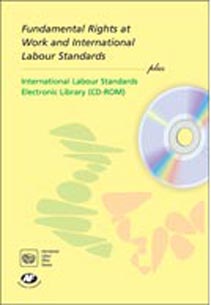 A4
A4

Hard-cover
•
2006
Pages: 133
ISBN: 8171884970
For Sale in South Asia Only
INR 595

Labour standards have long been upheld by the ILO as an essential pillar of development and peace at the national and international levels. Respect for fundamental rights at work is at the core of the ILO's decent work strategy. This important new book offers valuable insight on the content and application of the ILO's fundamental international labour standards and related standards.
These fundamental standards — on freedom of association collective bargaining, the abolition of forced and compulsory labour, equality of opportunity and treatment, and the protection of of children and young people — form the basis of the ILO's Declaration on Fundamental Princi-ples and Rights at Work and its Follow-up, 1998.
The book offers a detailed description of the relevant Conventions and their principles, along with specific problems encountered in their application at national level. Together, the information in this volume provides a thoughtful overview which can provide the basis for an ever more practical and fuller application of fundamental human rights worldwide. A crucial resource for labour authorities, lawyers, practitioners, and employers' and workers' organization.
The International Labour Organization was founded in 1919 to promote social justice and, thereby, to contribute to universal and lasting peace. Its tripartite structure is unique among agencies affiliated to the United Nations; the ILO's Governing Body includes representatives of government, and of employers' and workers' organizations. These three constituencies are active participants in regional and other meetings sponsored by the ILO, as well as in the International Labour Conference — a world forum which meets annually to discuss social and labour questions.
Over the years the ILO has issued for adoption by member States a widely respected code of international labour Conventions and Recommendations on freedom of association, employment, social policy, conditions of work, social security, industrial relations and labour administration, among others.